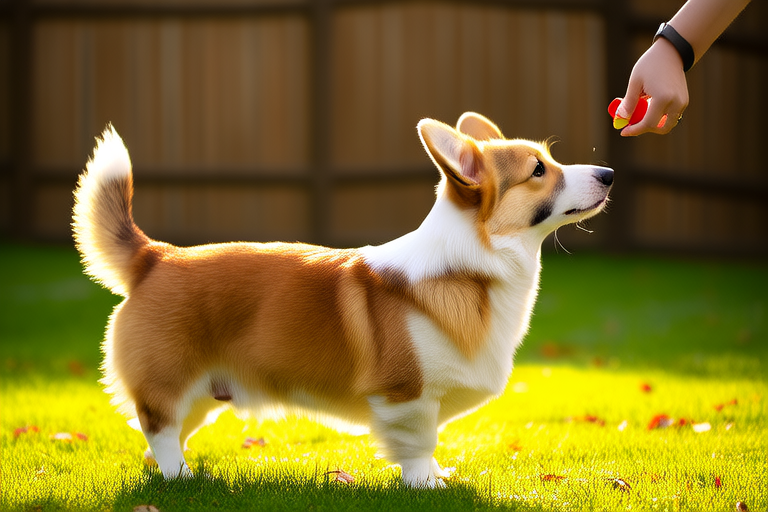Corgi Training Hacks: How to Tame That Stubborn Herd Protector
Welcome to the world of Corgis! These lovable, energetic, and intelligent dogs have a unique set of behaviors that make them both delightful companions and sometimes challenging to train. With their strong herding instincts and a bit of stubbornness, Corgis can be quite the handful. However, with the right approach, you can harness their natural talents and turn them into well-behaved, happy pets. Let’s dive into some practical and easy-to-follow training tips that will help you tame your Corgi’s herd protector tendencies.
Understanding Corgi Behavior
Corgis are descendants of the ancient Welsh herding dogs, known for their intelligence, loyalty, and work ethic. Their primary role was to herd livestock, which has shaped their behavior in several ways. Corgis are highly alert, possessive, and protective of their family, making them excellent watchdogs. They also have a strong prey drive and a tendency to chase anything that moves, which can be a challenge if not properly managed.
One of the most notable traits of Corgis is their stubbornness. This trait comes from their history as independent thinkers who needed to make quick decisions while herding. While this can make training a bit tricky, it also means they’re capable of learning complex commands when motivated correctly.
It’s essential to understand that Corgis thrive on mental stimulation and physical exercise. If they don’t get enough of these, they may become bored or destructive. Regular playtime, interactive toys, and mentally stimulating activities can go a long way in keeping your Corgi happy and well-behaved.
Effective Reward-Based Training Methods
Reward-based training, also known as positive reinforcement, is one of the most effective methods for training Corgis. This approach involves rewarding your dog for good behavior, which encourages them to repeat those actions. Rewards can include treats, praise, petting, or playtime, depending on what motivates your Corgi the most.
Start with Basics: Begin by teaching basic commands such as “sit,” “stay,” “come,” and “leave it.” Use treats to lure your Corgi into the desired position, then immediately reward them when they comply. Gradually phase out treats as your Corgi becomes more reliable with the command.
Use Clicker Training: Clicker training is a popular method where a clicker is used to mark the exact moment your Corgi does something right. The click is followed by a treat. This helps your Corgi understand exactly what behavior is being rewarded. It’s particularly useful for teaching new tricks or modifying specific behaviors.
Consistency is Key: Always use the same command words and hand signals to avoid confusing your Corgi. Consistency helps your Corgi learn faster and makes it easier for them to generalize the learned behavior in different situations.
Gradual Increase in Difficulty: Once your Corgi masters a command in a quiet environment, gradually increase the distractions. Start by adding small distractions like a toy or another person, then progress to busier environments like parks or streets. This ensures your Corgi can perform the command reliably in various settings.
Addressing Common Behavioral Issues
Like any breed, Corgis can exhibit certain behavioral issues. Understanding and addressing these issues early on can prevent them from becoming bigger problems later. Here are some common behavioral issues and how to handle them:
Chasing: Corgis’ herding instincts often lead them to chase moving objects or people. To address this, start by teaching the “leave it” command. Practice this command in a controlled environment where you can easily redirect your Corgi’s attention. Gradually introduce distractions and increase the difficulty as your Corgi becomes more reliable.
Destructiveness: Boredom and lack of exercise can lead to destructive behavior in Corgis. Provide plenty of mental and physical stimulation to keep your Corgi engaged. Puzzle toys, agility courses, and regular walks can help alleviate boredom and reduce destructive tendencies.
Barking: Corgis are known for their vocal nature, often barking to alert their family of potential threats. Teach your Corgi the “quiet” command by rewarding them when they stop barking. You can use a verbal cue like “enough” or a hand signal to prompt silence. Pair this with a treat or praise to reinforce the behavior.
Separation Anxiety: Many Corgis experience separation anxiety, especially if left alone for extended periods. To combat this, gradually acclimate your Corgi to being alone. Start by leaving them for short periods and gradually increase the time. Provide them with a comfortable, safe space filled with toys and a favorite blanket to create a cozy environment.
Maintaining Consistency in Training
Consistency is crucial in training Corgis. They need clear expectations and consistent reinforcement to understand what is expected of them. Here are some tips to maintain consistency:
Establish a Routine: Dogs thrive on routine. Establish a daily schedule for feeding, walking, and playtime. Stick to this schedule as closely as possible to provide structure and predictability for your Corgi.
Family Involvement: Ensure everyone in the household uses the same commands and follows the same rules. This prevents confusion for your Corgi and reinforces the learned behaviors.
Patience and Persistence: Training takes time and patience. Be patient with your Corgi and persistent in your efforts. Celebrate small victories and remain calm during setbacks. Positive reinforcement goes a long way in building a strong bond between you and your Corgi.
Seek Professional Help: If you’re struggling with certain behaviors or find yourself at a loss, consider seeking help from a professional dog trainer. They can provide personalized guidance and techniques tailored to your Corgi’s specific needs.
Final Thoughts
Taming a Corgi’s herd protector tendencies requires patience, understanding, and consistent effort. By recognizing their unique behaviors and employing effective training methods, you can turn your Corgi into a well-behaved, loyal companion. Remember, every Corgi is an individual, so be prepared to adapt your training approach based on your dog’s personality and needs. With love, patience, and the right tools, you’ll build a strong, trusting relationship with your Corgi and enjoy many years of companionship.
